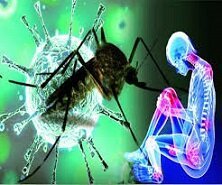 The parliamentary Health Secretary, Nida Khuhro (PPP) briefed Provincial Assembly of Sindh, that sudden rise and change in weather pattern due to climate change has caused the Chikungunya outbreaks in Karachi city. She told that the government of Sindh is taking all precautionary measures to prevent from this outbreak. Sharing the latest figures of Chikungunya tested positive in 181 out of 831 people in the province.
The parliamentary Health Secretary, Nida Khuhro (PPP) briefed Provincial Assembly of Sindh, that sudden rise and change in weather pattern due to climate change has caused the Chikungunya outbreaks in Karachi city. She told that the government of Sindh is taking all precautionary measures to prevent from this outbreak. Sharing the latest figures of Chikungunya tested positive in 181 out of 831 people in the province.
She said, due to climate change, which has led to hotter and more humid conditions that are conducive to mosquito breeding. Karachi’s rising temperatures, combined with periods of heavy rain and flooding, create ideal conditions for Aedes mosquitoes—the carriers of chikungunya—to thrive. This prolonged heat and humidity increase the survival rate of mosquito populations and lengthen breeding seasons, exacerbating the spread of diseases like chikungunya, dengue, and malaria
The city’s rapid urbanization without corresponding improvements in waste and water management further aggravates the issue. Stagnant water in various parts of Karachi, due to both rainfall and poor drainage, becomes breeding grounds for mosquitoes, which then spread chikungunya widely. This climate-driven risk emphasizes the need for stronger vector control measures, improved urban planning, and public health initiatives to address both immediate disease transmission and the broader impacts of climate change on health in the region
